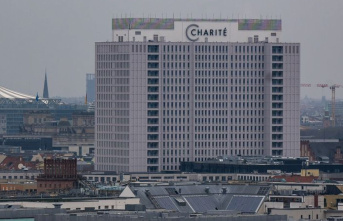It's a gesture that comes late and bumpy. The Netherlands, whose wealth as a trading nation began with the exploitation of colonies in the so-called "Golden Age" of the 17th century, wants to apologize for slavery.
Even before Prime Minister Mark Rutte's speech this Monday and an apology from government officials in the former colony of Suriname and overseas territories, there were heated debates. Some do not like the date and form, some descendants feel badly integrated. Others want King Willem-Alexander to apologize and Holland to pay compensation.
Rutte's apology plan was unwittingly made public at the start
The start was already tough. Although the government expressed its regrets in 2001 and 2013, descendants of slaves and residents of former colonies tried in vain for an apology from the former third-largest colonial power in the world. A commission set up by the government then declared in July that the Netherlands had to apologize and actively work to combat the consequences, such as racism. Next year the country will commemorate the end of slavery. Rutte's apology plan was unintentionally made public at the start. For weeks it was printed around what it could be about - and some were already dissatisfied in advance.
Surinamese associations wanted to urgently ensure that the apology was not made on an arbitrary date but on July 1 of next year, 160 years after the official abolition of slavery by the Netherlands. A court dismissed the lawsuit on Thursday. The fact that a Dutch minister, who is himself a descendant of slaves, is to speak to Franc Weerwind in Suriname on Monday caused a stir. A Surinamese representative demanded that "a white person" apologize. Rutte still lets Weerwind talk - but sent Deputy Prime Minister Sigrid Kaag to Suriname in advance to smooth the waves there.
From 1640-1670, the Netherlands were the world's largest slave traders
It has long been known that the historical postcard idyll of the Netherlands with stately mansions on Amsterdam's canals and the paintings of richly laden merchant ships has cracks. In addition to goods from the colonies, the boats also transported people - from 1640 to 1670, the Netherlands was the world's largest slave trader. The country enslaved an estimated 500,000 people over 200 years. They were mostly deported from West Africa, sold and had to work on the plantations in what was then the colonies of Suriname and the Antilles in the Caribbean. As one of the last countries in Europe, the kingdom officially abolished slavery on July 1, 1863.
Prime Minister Rutte doesn't think it's a bad thing that his appearance on Monday will fuel further discussions, on the contrary. Last week's debate had already led to "a wealth of reactions" and the intensity of the talks on slavery had increased, he said on Friday. The Netherlands could not demand acceptance of the apology, that would be arrogant, admitted State Secretary Marnix van Rij, who spoke on Monday on the tiny Caribbean island of Sint Eustatius. It's going to be a long process. "We are doing something as the Netherlands that we probably should have done a lot sooner."












